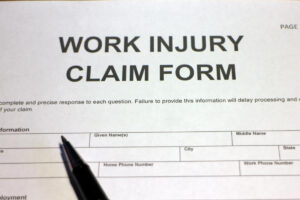 It is an all-too-common scenario. A property owner retains a general contractor to perform construction and/or renovations at a particular home. The general contractor retains various subcontractors to complete the project.
It is an all-too-common scenario. A property owner retains a general contractor to perform construction and/or renovations at a particular home. The general contractor retains various subcontractors to complete the project.
After project completion, the property owner claims that the work was in some way defective and needs to be repaired and/or corrected. If the homeowner retains an attorney, often the litigation takes a “shot gun” approach.
A lawsuit is filed against the contractor and all subs, no matter their involvement, alleging that each of the defendants were negligent in the performance of their work and are liable. When this occurs, the contractors are each facing five figure legal bills to defend the construction defect claims, even though most, if not all the contractors did absolutely nothing wrong.
So, is there insurance coverage for these types of claims under a CGL policy? It depends.
Types of Construction Defect Claims
 There are two types of claims a construction contractor may be subject to because of alleged defective products or workmanship. First is a claim resulting from the workmanship that requires replacement or repair of the contractor’s work itself. For example, if a claim is made against ABC Roofing Company, alleging that the roof work was defective and the roof needed to be replaced, this type of claim is most likely not covered.
There are two types of claims a construction contractor may be subject to because of alleged defective products or workmanship. First is a claim resulting from the workmanship that requires replacement or repair of the contractor’s work itself. For example, if a claim is made against ABC Roofing Company, alleging that the roof work was defective and the roof needed to be replaced, this type of claim is most likely not covered.
The claim is for damage to ABC Roofing’s own work. CGL policies uniformly contain “business risk” exclusions barring coverage for claims of improper workmanship.
However, where the allegedly defective workmanship results in property damage to some other part of the construction project, coverage under a CGL is likely. For example, if a claim is made against ABC Roofing alleging that leaks from its defective roofing work resulted in water damage to a bathroom on the interior of the home, coverage would likely be triggered.
In that scenario, coverage would likely be provided because the claim is that ABC Roofing’s faulty work caused injury to another portion of the property.
Often the Complaint is not entirely clear in outlining the claim for damages or articulating what each of the defendants did wrong. For example, a lawsuit against ABC Roofing could include general and vague allegations that the ABC’s own work was faulty and needed repairs and claim that the faulty work of ABC Roofing damaged the interior of the home.
The good news is that under New Jersey law, if the Complaint alleges any claim that is potentially covered under the policy, the insurance company’s obligation to retain and pay an attorney to represent you would likely be triggered.
Because the cost of retaining your own attorney to defend a lawsuit often exceeds the amount of provable damages that can be established by the claimant in these situations, getting the insurance carrier to pay your legal bill is critical.
 Of course, the analysis does not end here. There are several other “business risk” exclusions that could bar coverage, in whole or in part, for a construction defect lawsuit. The “business risk” exclusions contain various exceptions, and the interpretation and application of the exclusions is a fact sensitive inquiry.
Of course, the analysis does not end here. There are several other “business risk” exclusions that could bar coverage, in whole or in part, for a construction defect lawsuit. The “business risk” exclusions contain various exceptions, and the interpretation and application of the exclusions is a fact sensitive inquiry.
New Jersey law is liberal and considered policy holder friendly.
Obtaining a free consultation with an insurance coverage attorney who knows how to frame the complaint and allegations against you in a manner that triggers the insurance company’s obligation to pay your legal costs, and potentially cover any settlement or judgment in connection with the claim, could save you an enormous amount of time and money.
When a construction defect lawsuit is filed and the suit is turned over to the insurance company, many CGL carriers will construe the “business risk” exclusions broadly and claim that there is no coverage for the suit.
This is often the “knee jerk” reaction by the insurance industry, claiming that construction defect suits are never covered by liability insurance.
However, many claims handlers are unaware of the nuances of New Jersey law and wrongfully issue a disclaimer of coverage.
In New Jersey, however, if the insurance carrier wrongfully denies coverage under the policy and we file a successful lawsuit against the insurance company, the insurance carrier may be forced to pay your attorney’s fees for defending the lawsuit brought against you and any fees incurred suing the insurance carrier for coverage under the policy.
The best solution is to seek a free legal consultation to understand your rights.
About Me:
I spent over 15 years at a boutique law firm in northern New Jersey litigating insurance coverage disputes and defending personal injury cases on behalf of insurance companies.
Recently, I decided to put my knowledge and experience in the insurance field to work for policy holders, particularly small businesses in the construction field, who are particularly vulnerable to unscrupulous conduct by insurance carriers.
I opened the Law Firm of Matthew V. Markosian, LLC, in April of 2022. While the practice extends statewide, my office is in Princeton Junction.